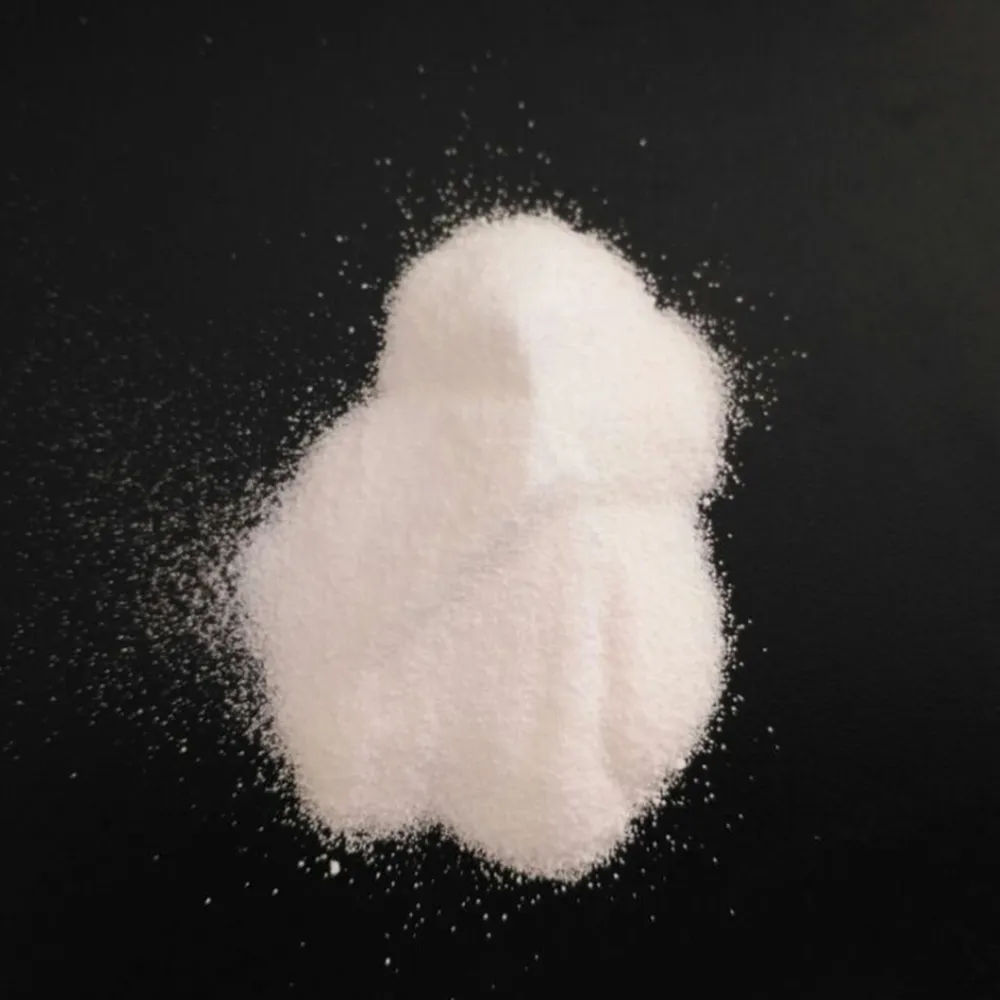



List of Mining Chemicals
Mining is an essential industry that involves the extraction and processing of minerals and ores from the earth. To ensure efficient, safe, and effective extraction and processing, a wide range of products are used, including equipment, tools, and chemicals. Mining chemicals are integral to the mineral processing stage, aiding in the extraction, separation, and purification of valuable resources. In this article, we will explore the list of mining chemicals, their applications, and the role they play in modern mining operations.

What Are Mining Chemicals?
Mining chemicals are specialized substances used in the extraction, processing, and transportation of minerals and ores. These chemicals serve various functions in the mining industry, including facilitating the separation of minerals, preventing contamination, enhancing ore processing, and improving the efficiency of mineral extraction. Mining chemicals include reagents, solvents, acids, and other additives that are applied at different stages of the mining process, from ore beneficiation to tailings management.
For mining companies, selecting the right mining chemicals supplier is crucial. These suppliers provide high-quality chemicals that are essential for various mining applications, including flotation, leaching, and ore extraction. As mining operations become more complex, the demand for advanced chemicals and solutions has grown, making it vital to have access to the latest chemical formulations and innovations in the industry.
Common Chemicals Used in Mining Processes
The extraction and processing of minerals require the use of various chemicals to ensure efficiency and safety. Here's a list of some of the most commonly used mining chemicals and their specific roles:
1. Flotation Reagents
Flotation is a widely used method in the mining industry for separating valuable minerals from gangue (waste materials). Flotation reagents are chemicals that improve the efficiency of the flotation process by enhancing the separation of minerals. These include:
Collectors: These chemicals increase the hydrophobicity of the target minerals, allowing them to attach to air bubbles and float to the surface for removal.
Frothers: These chemicals stabilize the foam generated during flotation, allowing the separation of minerals to occur more effectively.
Depressants: These chemicals are used to prevent unwanted minerals from floating, ensuring selective separation of valuable minerals.
2. Cyanide
In the extraction of gold and silver, cyanide is one of the most widely used chemicals. Cyanidation is a process where cyanide is used to dissolve gold from ore, creating a solution that can be processed further to extract the gold. Despite its effectiveness, cyanide is highly toxic and requires careful handling and disposal to minimize environmental impact.
3. Flocculants
Flocculants are chemicals used to aid in the settling of solids in mining processes, such as in the treatment of tailings or during the filtration of slurry. By promoting the aggregation of fine particles into larger clusters (or flocs), flocculants help to clarify water, reduce the volume of waste materials, and improve the overall efficiency of the mining operation.
4. Acids (e.g., Sulfuric Acid)
Acids, such as sulfuric acid, are used in various mineral processing techniques, including heap leaching and acid mine drainage treatment. In leaching, sulfuric acid is used to extract metals like copper and uranium from their ores. It is also used in the purification of certain ores during the refining process. However, the environmental impact of acid use in mining must be carefully managed to prevent soil and water contamination.
5. Anti-Caking Agents
In mining, particularly when dealing with bulk chemicals, anti-caking agents are used to prevent the formation of clumps or lumps in chemical powders like fertilizers and explosives. These agents ensure that the chemicals remain free-flowing and easy to handle during transportation and application.
6. Solvent Extractants
In the extraction of various metals, solvent extractants are used to separate metal ions from their ores. These chemical solutions are particularly useful in the extraction of copper, cobalt, and nickel. The process involves mixing the solvent with the ore, where it selectively binds with certain metal ions, which are then separated and purified.
7. Lime and Limestone
Lime and limestone are used extensively in mining for a range of purposes. Lime is used in the treatment of acidic water (acid mine drainage), neutralizing acidity and preventing corrosion. Limestone is often used as a flux in smelting, as it helps remove impurities from the ore and assists in the production of high-quality metal.
The Role of Mining Chemicals in Environmental Management
Mining chemicals play a critical role in the environmental management of mining operations. Proper use of chemicals can significantly reduce environmental damage, improve resource efficiency, and ensure regulatory compliance. For instance, flocculants help improve water treatment processes by clarifying wastewater and reducing the environmental footprint of mining activities. Additionally, chemicals like lime can neutralize acidic waters caused by acid mine drainage, preventing contamination of surrounding ecosystems.
However, the use of chemicals in mining can also pose environmental risks if not properly managed. The toxic nature of some chemicals, such as cyanide, requires strict safety protocols to ensure that they do not leak into the environment. Moreover, the disposal of mining chemicals must be handled with care to avoid soil and water contamination, which could lead to long-term ecological damage.
As mining companies continue to focus on sustainability, the development of more eco-friendly alternatives to traditional mining chemicals is becoming a priority. New technologies and chemical formulations are being developed to reduce environmental impact while maintaining the efficiency of mineral extraction.
Choosing the Right Mining Chemicals Supplier
Selecting a reputable mining chemicals supplier is vital for the success and safety of mining operations. A reliable supplier will not only provide high-quality chemicals but also offer technical expertise, safety protocols, and regulatory compliance assistance. Here are some factors to consider when choosing a mining chemicals supplier:
Product Range: The supplier should offer a wide range of chemicals tailored to different stages of the mining process, including flotation reagents, flocculants, acid solutions, and leaching agents.
Quality Assurance: The supplier must adhere to strict quality control measures to ensure that the chemicals meet industry standards and regulatory requirements.
Sustainability: Look for suppliers who focus on providing environmentally friendly chemicals and solutions that minimize ecological impact.
Technical Support: The supplier should offer expert advice and support to help optimize chemical use and improve the efficiency of mining operations.
Safety: Choose a supplier that provides proper safety data sheets, handling instructions, and emergency response plans for the chemicals they supply.
Flotation Reagents FAQs
What are the main chemicals used in mining?
The main chemicals used in mining include flotation reagents, cyanide, flocculants, acids, anti-caking agents, and solvent extractants. These chemicals aid in the extraction and processing of minerals, improving efficiency and safety.
How does cyanide help in gold extraction?
Cyanide is used in the cyanidation process to dissolve gold from its ore. The gold is then separated from the solution and purified. While effective, cyanide is toxic and requires careful handling and disposal.
What is the role of flocculants in mining?
Flocculants are used to aggregate fine particles into larger clusters or flocs, which can then be removed from the water. This helps in clarifying water, reducing the volume of waste materials, and improving the overall efficiency of mining processes.
Why are mining chemicals important for environmental management?
Mining chemicals help manage environmental impacts by improving water treatment, neutralizing acidity, and reducing contamination. Proper use of these chemicals ensures that mining operations comply with environmental regulations and minimize their ecological footprint.
Where can I buy mining chemicals?
You can purchase high-quality mining chemicals from trusted suppliers and manufacturers. Visit our website for a range of chemicals tailored to mining operations, including flotation reagents, cyanide, and more, all backed by excellent technical support and safety protocols.
The list of mining chemicals is diverse, and each chemical plays a specific role in the mineral extraction and processing stages. From flotation reagents to cyanide, flocculants, and solvent extractants, mining chemicals are essential for improving the efficiency and safety of mining operations. Choosing the right mining chemicals supplier is key to ensuring the proper use of these chemicals and maintaining the overall success of mining projects.
If you’re looking for reliable mining chemicals to optimize your mining operations, visit our website for high-quality products and expert advice. With a focus on safety, efficiency, and sustainability, we are your trusted partner in the mining industry.
-
How and Why to Disinfect Water Softeners for Safe, Reliable WaterHabariNov.24,2025
-
Effective Deionized Water Disinfectant Solutions for Healthcare & Industrial UseHabariNov.24,2025
-
Commonly Used Disinfectant for Drinking Water – Global Uses & InnovationsHabariNov.23,2025
-
Chemical to Disinfect Water – Essential Solutions for Safe, Clean Drinking WaterHabariNov.23,2025
-
Blue Water Disinfectant: Safeguarding Global Water Quality with InnovationHabariNov.22,2025
-
Bleaching Powder for Water Disinfection – Affordable & Effective Water Treatment SolutionHabariNov.22,2025
-
Bleaching Powder Drinking Water: Effective, Affordable Disinfection WorldwideHabariNov.21,2025

list of mining chemicals
An Overview of Mining Chemicals Their Role and Impact
Mining is a cornerstone of the global economy, providing essential raw materials for various industries. However, the process of extracting these minerals and metals often requires a range of chemicals, collectively referred to as mining chemicals. These substances not only facilitate the extraction and processing of ores but also influence the overall efficiency and environmental sustainability of mining operations.
Mining chemicals can be categorized into several key groups based on their functions. Reagents are among the most critical. They assist in the separation of valuable minerals from waste materials during processes such as flotation, leaching, and smelting. Common reagents include collectors, frothers, and modifiers, which work together to enhance the recovery and purity of desired metals. For instance, xanthates are widely used as collectors in the flotation process of sulfide ores, aiding in the selective separation of valuable minerals.
An Overview of Mining Chemicals Their Role and Impact
Dosage control chemicals also play a vital role in mining operations. These substances ensure the correct concentration of reagents in various processes, maximizing efficiency and minimizing waste. For instance, pH control agents help maintain the optimal acidity or alkalinity in leaching and flotation, influencing the effectiveness of the chemical reactions involved.
list of mining chemicals

Moreover, mining chemicals are essential for water treatment in mining operations. The water used in extraction processes can become contaminated with heavy metals and other pollutants, posing risks to the environment. Various water treatment agents, like coagulants and flocculants, are utilized to remove these contaminants, ensuring that treated water meets regulatory standards before being released back into natural waterways.
Despite the benefits of mining chemicals, their usage raises environmental concerns. Improper handling and disposal can lead to soil and water contamination, adversely impacting local ecosystems and communities. Consequently, the mining industry is increasingly adopting more environmentally friendly alternatives and implementing stringent regulations to mitigate these risks.
In recent years, the shift towards sustainable mining practices has gained momentum. Innovations such as biodegradable collectors and non-toxic leaching agents are being researched and developed. The goal is to reduce the ecological footprint of mining operations while maintaining efficiency and profitability.
In conclusion, mining chemicals are integral to the mining industry, facilitating efficient extraction and processing of minerals. However, their potential environmental impacts cannot be ignored. As the industry evolves, the focus on sustainable practices and the development of safer alternatives will be crucial in balancing economic growth with ecological preservation. The future of mining chemicals lies in innovation, responsibility, and a commitment to protecting our planet.
-
How and Why to Disinfect Water Softeners for Safe, Reliable WaterHabariNov.24,2025
-
Effective Deionized Water Disinfectant Solutions for Healthcare & Industrial UseHabariNov.24,2025
-
Commonly Used Disinfectant for Drinking Water – Global Uses & InnovationsHabariNov.23,2025
-
Chemical to Disinfect Water – Essential Solutions for Safe, Clean Drinking WaterHabariNov.23,2025
-
Blue Water Disinfectant: Safeguarding Global Water Quality with InnovationHabariNov.22,2025
-
Bleaching Powder for Water Disinfection – Affordable & Effective Water Treatment SolutionHabariNov.22,2025
-
Bleaching Powder Drinking Water: Effective, Affordable Disinfection WorldwideHabariNov.21,2025










